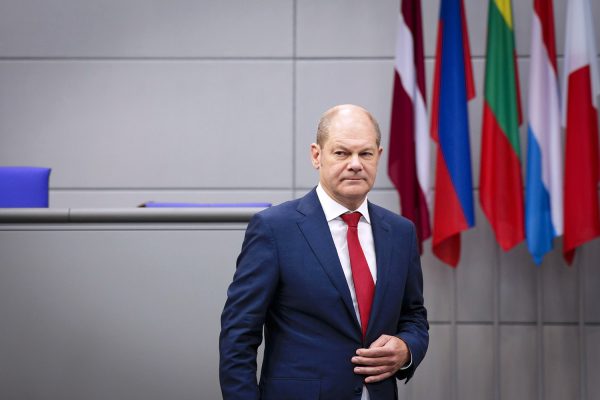
Germany’s Christian Democrats are panicking. I wrote here last week that the unimpressive Armin Laschet is dragging Angela Merkel’s party down. All the opinion polls published since then have put the Social Democrats in the lead with 23 to 27 percent support, compared to 19-22 percent for the conservatives. The Greens and liberal Free Democrats are in third and fourth place.
Until a few months ago, the expectation in Berlin was that the Christian Democrats would swap the Social Democrats for the Greens in the next government. Now a two-party coalition is unlikely, and there is even a chance the Christian Democrats will lose power altogether.
Left-wing options
The most likely scenario is a three-party government of Social Democrats, Greens and liberals, although it is unappealing to the latter. The first two want to raise taxes and regulate their way out of Germany’s climate and housing crises; the liberals argue for tax cuts and deregulation. The parties also disagree about defense. The Social Democrats and Greens don’t feel the need to meet NATO’s 2-percent spending target. The liberals want to go to 3 percent.
A minority government of Social Democrats and Greens, alternately supported by the center-right and far-left, shouldn’t be ruled out. Such governments have been successful in Spain and Sweden.
I would rate a left-wing government of Social Democrats, Greens and The Left, the heirs to the former East Germany’s ruling communist party, less likely. But that is the prospect Christian Democrats are raising in a bid to scare centrist voters.
Scare tactics
It’s a tried-and-tested method. Merkel deployed it in 2013, when she warned the only alternative to her then-coalition with the Free Democrats was a government of the left. (In fact, she formed a “grand coalition” with the Social Democrats.) She deployed it again on Tuesday, in her first intervention in this year’s election campaign, when she said it was “unclear” if Social Democratic Party leader Olaf Scholz, who is also her finance minister, would rule out a pact with The Left.
In an op-ed for EUobserver, I argue that Scholz — who has refused to rule out any option — shouldn’t take the bait. The polls don’t even give a left-wing coalition a majority. The Left has softened its economic program. And the experience in Spain and Sweden has been encouraging. Far-left parties there have prioritized bread-and-butter issues, like regulating the “gig” economy and making housing more affordable, over sweeping ambitions to reform capitalism and NATO. Conservative scare tactics are unlikely to work this time.
Click here to read the rest.
